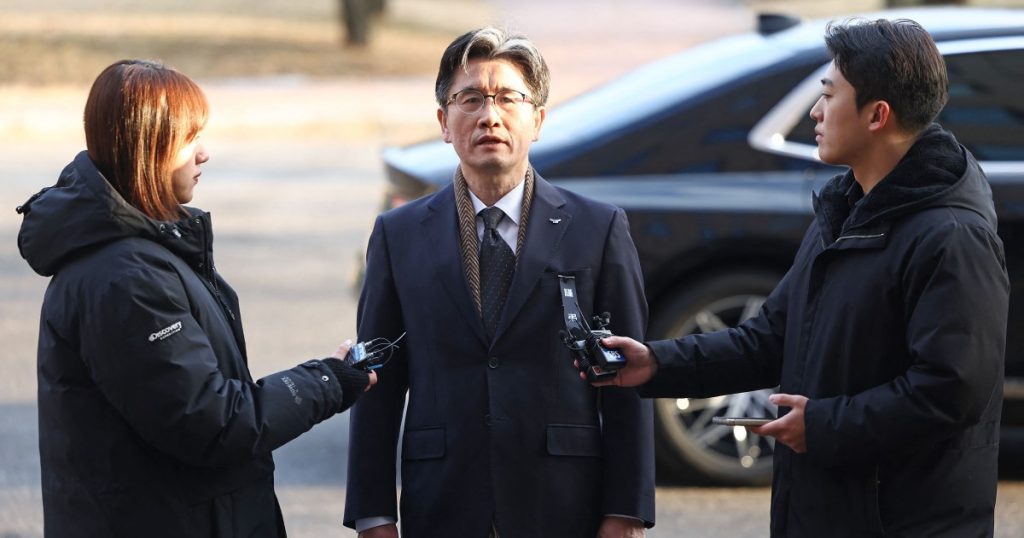The head of the Office of Corruption Investigation for Senior Officials warns that anyone who blocks the arrest could be prosecuted.
Impeached South Korean President Yoon Suk-yeol will be arrested before an order issued for his short-term declaration of martial law expires next week, the country’s top anti-corruption investigator has said.
Oh Dong-woon, head of the Office of Corruption Investigation for Senior Officials, told reporters on Wednesday that the arrest warrant against Yoon would be executed “within the valid period”, the last day of which is Monday.
“We aim for a smooth process without major disturbances, but we are also coordinating to mobilize police and personnel in preparation,” Oh told reporters at the government complex in Gwacheon, south of Seoul.
Oh warned that anyone seeking to block Yoon’s arrest could be prosecuted.
“We consider actions such as erecting various barricades and closing iron gates to resist the execution of our arrest warrant as obstruction of official duties,” he said.
Speculation about when and how authorities would take Yoon into custody has been rife since the country’s Joint Investigation Staff requested an arrest warrant for Yoon, which a Seoul court granted on Tuesday.
Yoon’s security detail previously blocked investigators from executing some search warrants on the president, and local media have suggested authorities would be unlikely to forcibly detain the embattled leader without coordinating with his bodyguards.
If arrested, Yoon will be the first president in South Korean history to be arrested.
He is facing criminal charges of abuse of power and sedition, a crime punishable by life imprisonment or the death penalty, for his brief imposition of martial law on December 3, which plunged South Korea into its own crisis. biggest political in decades.
Yoon’s legal team has argued that the order is “illegal and void” as investigators do not have the authority to investigate the president for sedition.
Yoon, who served as the country’s top prosecutor before entering politics, has been suspended from office since Dec. 14, when the National Assembly voted 204-85 to impeach him.
Finance Minister Choi Sang-mok has served as acting president since Friday, when the legislature voted to impeach Yoon’s initial successor, Han Duck-soo, for his refusal to immediately appoint three judges to the country’s Constitutional Court.
The court is considering whether to uphold Yoon’s impeachment or restore his presidential authority, a process that could take up to six months.
Choi on Tuesday approved the appointment of two judges appointed by parliament, leaving only one vacancy on the bench.
At least six judges on the nine-member court must approve Yoon’s impeachment to remove him from office.
Yoon has defended his brief martial law decree as legal and necessary, citing the threat of “anti-state forces” and obstruction from his opposition rivals.


